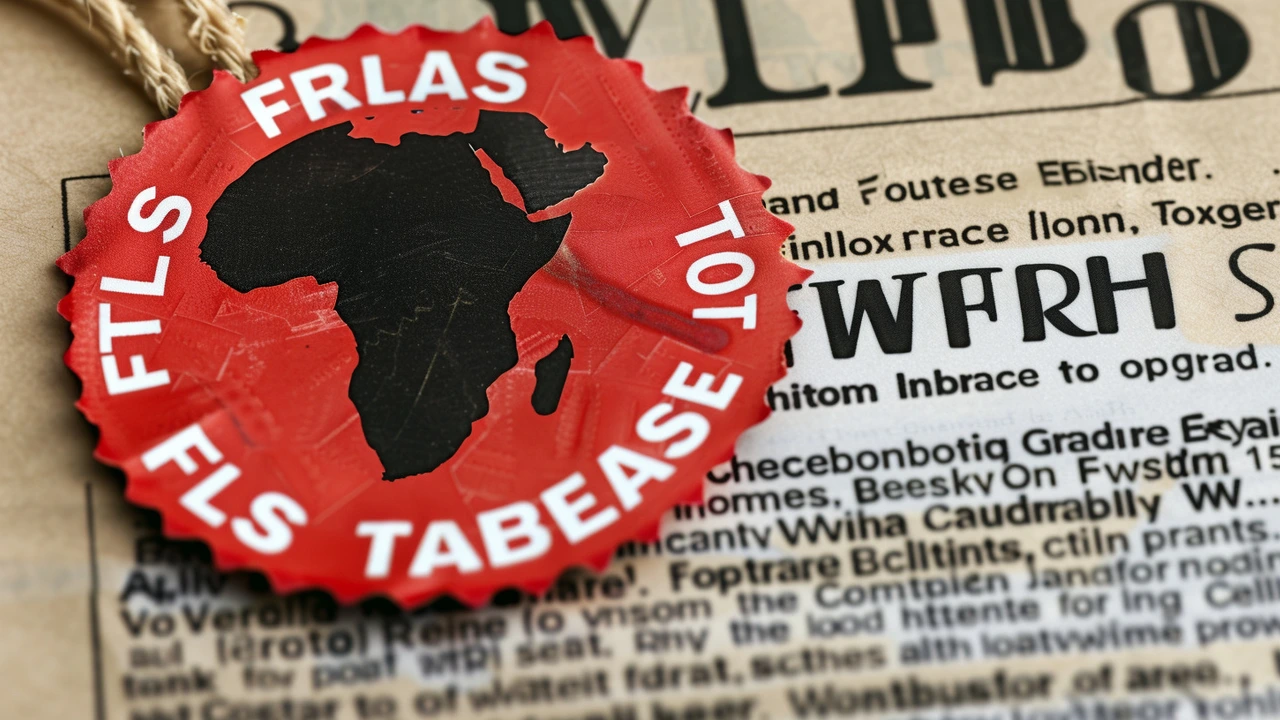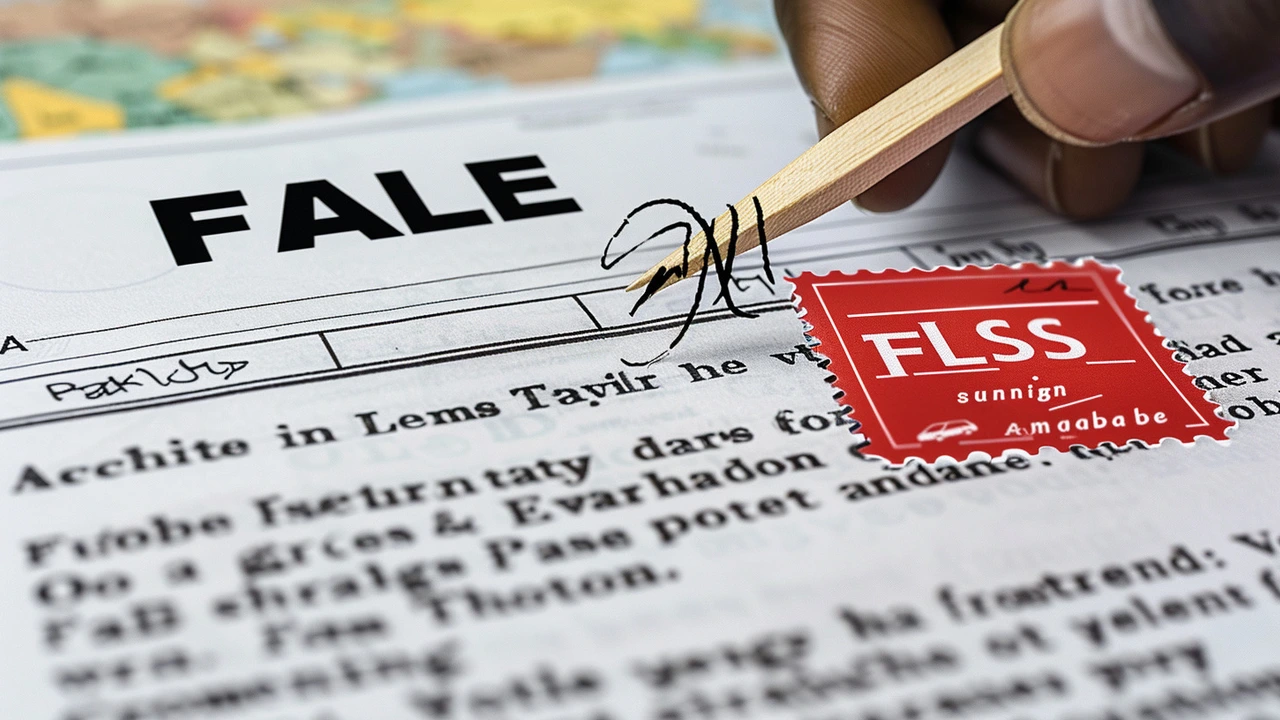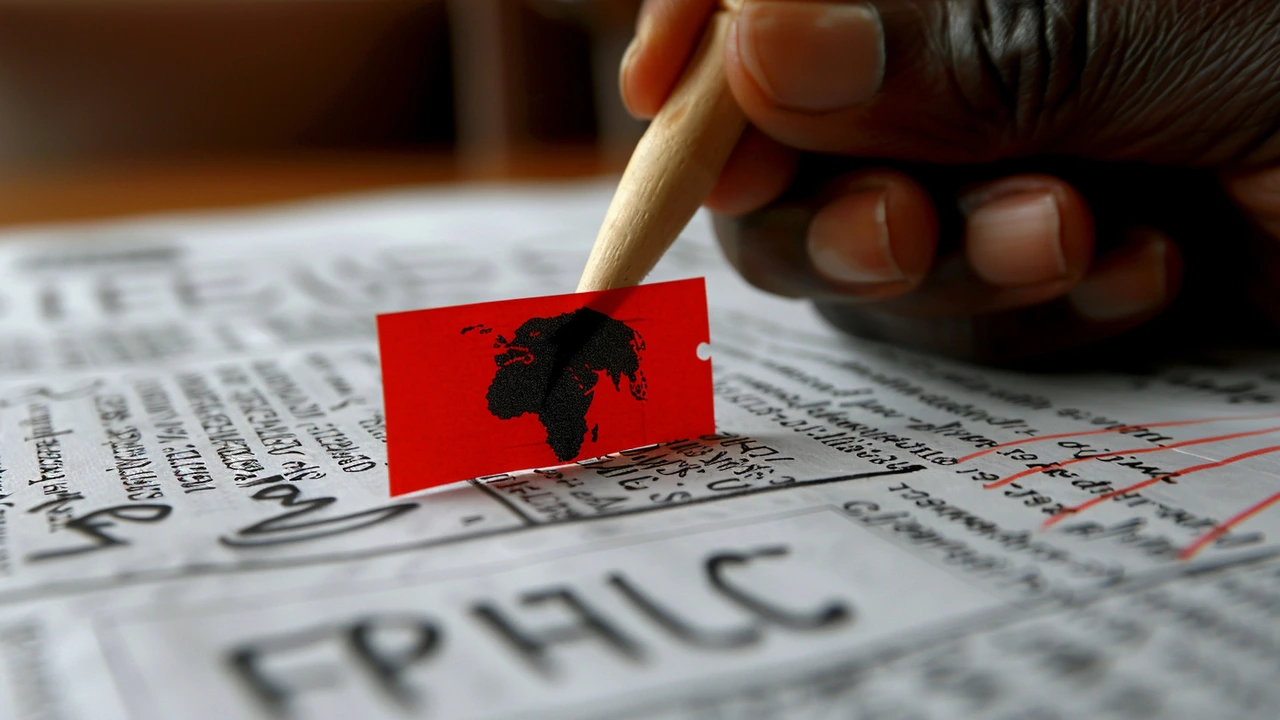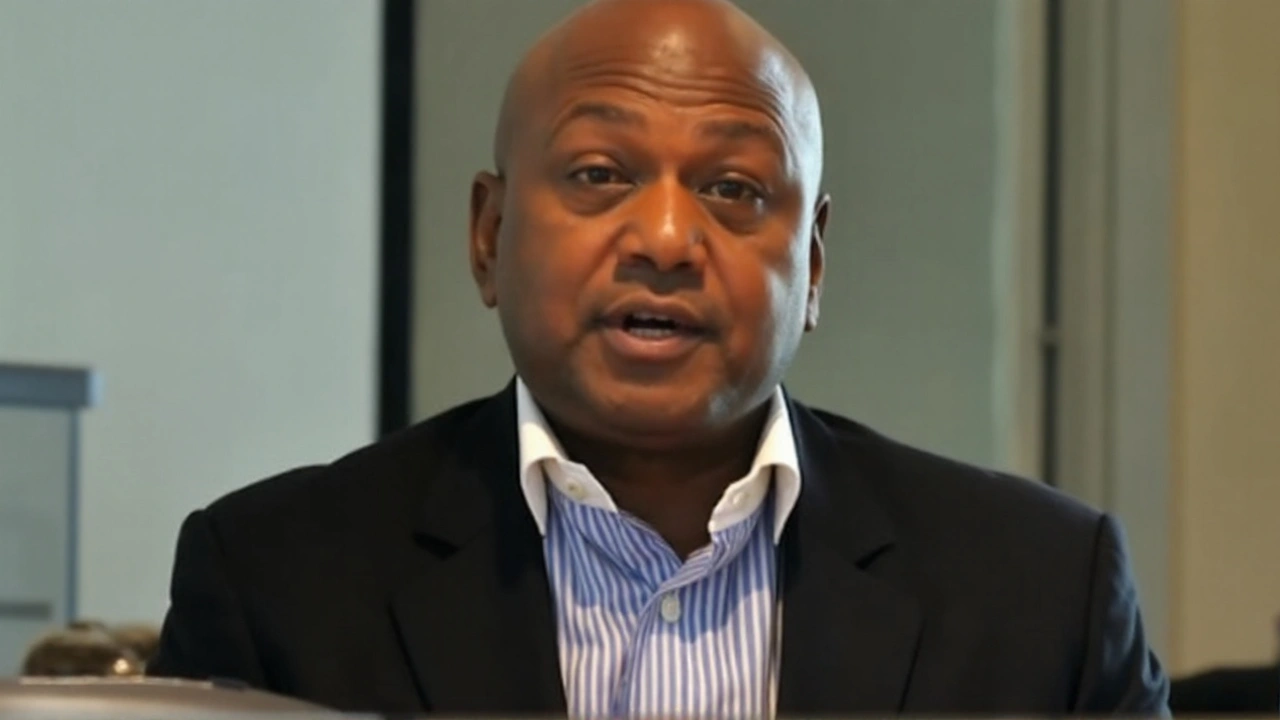Introduction
In the lead-up to South Africa’s national and provincial elections set for May 29, 2024, a wave of disinformation has struck the voting process. Particularly, a viral message circulated on platforms like WhatsApp and Facebook claimed that voters would need to bring their own black ballpoint pens to the polling stations. This claim, purporting that the ink in pens provided by the Electoral Commission of South Africa (IEC) evaporates quickly, allegedly allows unauthorized tampering of marked ballots. However, the IEC has strongly refuted this assertion, underscoring the importance of addressing false information in the electoral process.
The False Claim
The viral message suggested that the provided pens’ ink would disappear after a short period, enabling illicit alterations of voters' ballots. Social media messages warned people to bring their own black ballpoint pens, fueling apprehension and distrust among the voters. This misinformation caught fire quickly, spreading like wildfire across various social media platforms, thereby creating unnecessary panic and confusion among the electorate.Disinformation of this nature can potentially destabilize electoral participation and trust in the democratic process, making it crucial to tackle such claims head-on.

IEC's Response
The IEC took swift action to debunk these misleading claims. They utilized X (formerly Twitter) and Facebook to issue a clear and firm rebuttal, assuring the public that the ink in their pens does not evaporate and that all voting stations will be well-equipped with pens for voters to use. They emphasized that the message circulating was entirely false and urged the public to refrain from spreading it further.
In addition, the IEC encouraged individuals to report any instances of such disinformation to real411.org, a platform dedicated to combating digital false information. Accurate and transparent communication is a cornerstone of a functioning democracy, and the IEC’s prompt response signals its commitment to maintaining the integrity of the upcoming elections.
The Impact of Disinformation
The circulation of misleading information during election periods is not a new phenomenon, but in today’s digital age, its reach and impact have grown exponentially. Disinformation can shape public perception and influence voter behavior in profound ways. In some cases, it may even suppress voter turnout by fostering doubts about the electoral process’s fairness and integrity. This is why it is crucial for institutions like the IEC to actively engage in debunking false claims and ensuring that voters receive accurate and timely information.
Challenges in Combating Misinformation
Combating misinformation presents numerous challenges. Social media platforms, while powerful tools for information dissemination, are equally prone to being vessels for false information. Algorithms often prioritize content that generates high engagement, which can unfortunately mean that sensational or misleading posts gain more visibility. Users, on the other hand, may inadvertently or deliberately share these posts, contributing to the spread of misinformation.
Another significant challenge is verifying information in real-time. When a false claim goes viral, the speed at which it spreads can outpace the ability of authorities and fact-checkers to debunk it. This delay can lead to a situation where even once false information is corrected, the damage has already been done. People's perceptions are shaped quickly, and initial impressions can be hard to reverse.

Steps Forward
For voters, the best approach is to always verify the information they come across before believing it or sharing it further. This means checking the official sources, such as the IEC’s social media channels or website, which are dedicated to providing accurate and up-to-date electoral information. By doing so, voters play an active role in reducing the spread of misinformation.
The IEC, on its part, must continue to engage proactively with the public. Regular updates, transparent communication, and quick responses to emerging rumors can significantly mitigate the impact of disinformation. Partnerships with media outlets and fact-checking organizations such as real411.org can also play a critical role in amplifying true information and demystifying falsities.
Media’s Role
Media organizations bear a significant responsibility in this regard. As the primary source of information for most people, they must commit to journalistic integrity and accuracy. This involves not just reporting on events and announcements but also actively debunking false claims. Investigative journalism can unearth the sources of disinformation campaigns, thereby allowing for targeted actions against those spreading falsehoods.
Moreover, media literacy programs can be instrumental. Educating the populace about how to identify reliable information sources, recognize the hallmarks of credible news, and understand the motives behind false information can empower individuals to make more informed decisions.
Conclusion
The lead-up to any election is fraught with challenges, and disinformation represents a significant threat. The false claims about pen use at voting stations underscore the necessity for vigilance and proactive measures. The IEC’s prompt response in debunking the misinformation serves as a strong example of how electoral bodies can uphold the integrity of the voting process. As May 29, 2024, approaches, ensuring a well-informed electorate remains paramount. Voters, media, and the IEC must continue to work together to foster a transparent and trustworthy electoral environment.



Horace Wormely
May 29, 2024 AT 00:28The IEC’s statement is straightforward: the pens supplied at polling stations are fully functional and the ink does not evaporate. Voters need not worry about bringing personal pens, as the commission has confirmed the equipment meets all standards. Relying on official channels for updates eliminates the spread of baseless rumors.
Douglas Gnesda
May 31, 2024 AT 08:02From a procedural standpoint, the IEC’s logistics chain includes vetted suppliers, quality control checkpoints, and compliance audits to ensure all voting materials, including pens, meet statutory requirements. The assertion that ink could vanish after a brief interval disregards the chemical composition of ballpoint ink, which is designed for permanence on porous substrates such as ballot paper. Moreover, any attempt to tamper with a ballot would leave discernible marks or inconsistencies detectable during the counting process. In short, the narrative of evaporating ink is a classic example of misinformation exploiting procedural opacity. By understanding the supply chain, voters can appreciate the robustness of the election infrastructure.
christine mae cotejo
June 2, 2024 AT 15:35When the whisper of a rumor catches wind, it spreads like wildfire across the digital savannah, devouring reason with every flicker of a shared post. The claim that voters must bring their own black ballpoint pens is a theatrical flourish, a plot twist worthy of a low‑budget thriller. Yet, behind the dramatics lies a simple truth: the IEC equips every station with pens that meet proven standards. Ink evaporation is a physical impossibility; the pigments are oil‑based, engineered to cling to paper fibers, not to vaporize into thin air. Attempts to rewrite a ballot after the fact would leave unmistakable forensic evidence, which election officials are trained to detect. The rapid circulation of this myth underscores how fear can masquerade as vigilance, prompting people to cling to imagined safeguards. In the age of instant messaging, a single sensational claim can masquerade as fact within minutes, overwhelming critical appraisal. This phenomenon is not new-historical election cycles have been peppered with similar spurious warnings about everything from counterfeit stamps to poisoned ballots. What changes now is the velocity at which falsehoods travel, propelled by algorithms that reward engagement over accuracy. The IEC’s swift rebuttal on X (formerly Twitter) and Facebook demonstrates an essential counter‑measure: direct communication from trusted institutions. By posting clear, concise explanations, the commission short‑circuits the rumor mill before panic can take root. Citizens who verify such notices against official channels help inoculate the public sphere against contagion. Moreover, empowering voters with the knowledge that pens are provided reduces unnecessary anxiety and removes a barrier to participation. In the grander scheme, each debunked myth restores a fragment of confidence in the democratic process. Let us remember that democracy thrives not on the absence of misinformation, but on the collective resolve to confront it head‑on, armed with facts and critical thinking.
Abhijit Pimpale
June 4, 2024 AT 23:08The myth likely stems from a misunderstanding of how ballpoint ink interacts with paper fibers; the ink is oil‑based and does not simply dissolve into air. Fact‑checking agencies have repeatedly debunked the claim, confirming the IEC’s equipment is perfectly adequate.
Eric DE FONDAUMIERE
June 7, 2024 AT 06:42Dont trust the myth, the pens are fine.
Pauline Herrin
June 9, 2024 AT 14:15It is incumbent upon the electorate to consult verified sources, such as the IEC’s official communications, before disseminating unsubstantiated assertions. Reliance on authenticated information safeguards the integrity of the democratic process.
pradeep kumar
June 11, 2024 AT 21:48Your emphasis on official channels is noted, yet the tone borders on condescension, which may alienate those already skeptical of institutional narratives.
love monster
June 14, 2024 AT 05:22Let’s keep the focus on sharing facts, because an informed community is the strongest defense against panic‑inducing falsehoods.